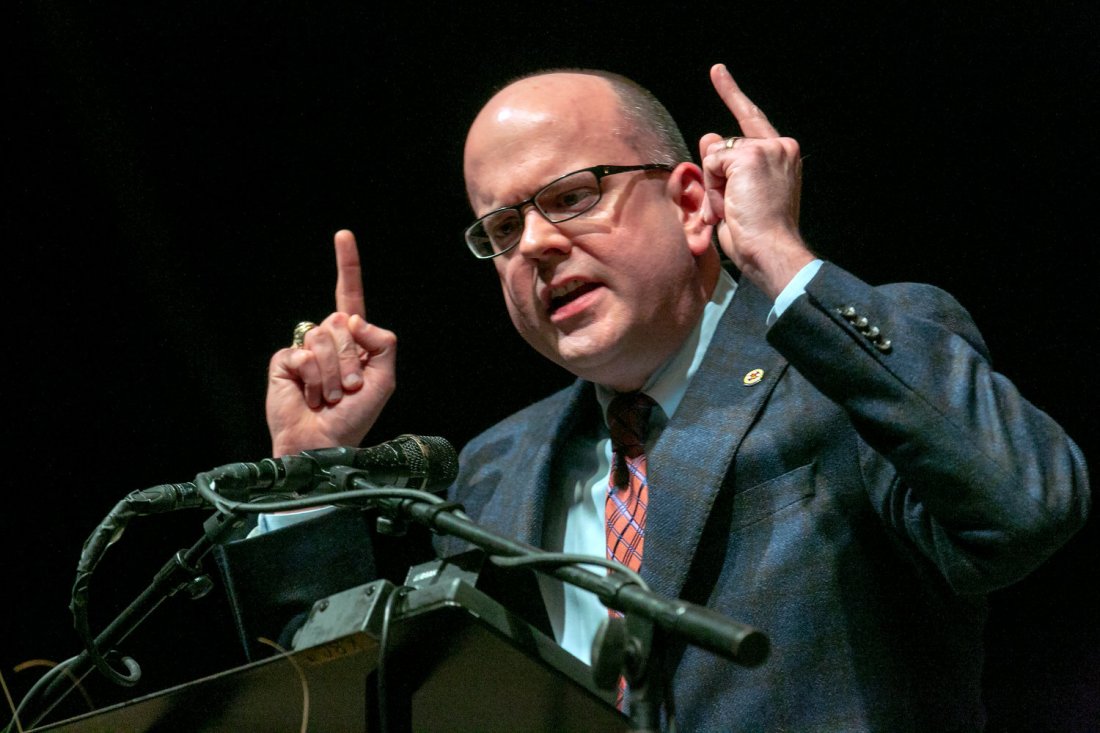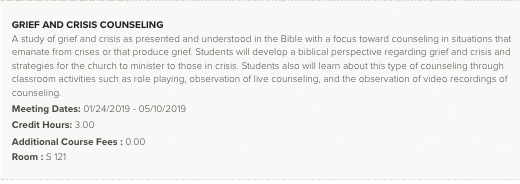
If you’ve spent much time as a Southern Baptist pastor, ministry worker, or denominational employee, you learn one reality fairly quickly: The SBC is mind-numbingly slow to respond, typically behind the tech-curve, and somewhat insular. As popular podcaster Marty Duren has pointed out, no greater evidence is needed than the persistent inability for the denomination’s Nashville-based press office to do any substantive reporting. Even when they do, it is only after the news is already broken somewhere else.
Unless, of course, you are a bakeshop owner who’s asked to make a cake for people whose sexual orientation is different from your own or you are a persecuted couple who shielded your son from criminal investigation when he repeatedly molested four of your daughters.
Baptist Press reports, like most everything else generated by the denominational apparatchik, are more often than not unnecessarily tardy, excessively editorialized, and annoyingly sanctimonious. Why, for instance, has it taken bloggers to expose every instance of financial irregularity and administrative perversity that occurred at Southwestern Seminary under the leadership of Leighton Paige Patterson?
To be fair, Baptist Press is woefully underfunded to have a serious newsroom. And financial straits placed on its sponsoring organization, the Executive Committee, in the wake of Ronnie Floyd’s misguided efforts to redistribute Cooperative Program receipts haven’t helped. For years, they’ve been asked to make bricks without straw. The Floyd committee took away some of the necessary mud and water to boot.
Moreover, Baptist Press is reflective of the larger problem Southern Baptists now see in the mirror with horrifying clarity, albeit somewhat disingenuous alarm. The problem is this: We just don’t do things very well. We don’t communicate well. We don’t evangelize very well. We don’t pray very well. We don’t protect innocence very well.
And we probably wouldn’t create and maintain a convention-managed database of sex offenders very well. Let me illustrate my point.
For nearly five years, I served as the pastor of the Parkview Baptist Church in Arlington, Tex., during the days of my pre-doctoral coursework at Southwestern Baptist Theological Seminary in nearby Fort Worth and doctoral coursework at Baylor University. It was under the interim pastorate of my predecessor, Rev. Miles Seaborn, that the 40-member church had left the Baptist General Convention of Texas and joined the Southern Baptist of Texas Convention.
The congregation, once a thriving group of believers on Arlington’s northside, was a shell of its former self. There were no young adults, no children, and mostly widows and married senior couples who were committed to the ministry but at a loss for how to turn the church around after repeated scandals involving pastoral malpractice.
Slowly, we started to re-engage the community. I recruited seminary couples with children to commit one year to attend and help re-populate the nursery and kids programs. We started going door-to-door in the neighborhood every Saturday, passing out tracts and invitations to attend neighborhood festivals and Vacation Bible Schools.
But it was harder than I anticipated. Despite two years of consistent effort, we never got more than a handful of young families to join. I grew frustrated, and at times teetered between blaming God and church members for what felt like failure.
Then one day, a married couple who had been attending our church asked to meet with me on a Wednesday afternoon before the mid-week prayer service. That was the day I told myself, “I cannot do this any longer. I want out of the pastorate.”
For the previous several months, this couple — both in their mid-40s — had been faithfully attending Sunday School and church. They knew the Bible, and seemed eager to help with setting up for church events and always pitched in with cleanup after fellowship meals. They never filled out a visitor’s card, and I never knew where they lived. But I knew their home was nearby because they walked to church. A few times, when they had medical appointments or needed a ride somewhere, they would walk to the church and meet me or a deacon. They never invited anyone to their house.
After a while, I asked them about baptism and church membership. They told me they would pray about it, and a few more weeks went by. Then, the day came they asked to meet with me. I presumed it was to talk about joining the church. At the appointed hour, they showed up at the church office.
“We have something we need to tell you, pastor,” the man said. “We have both been in jail.”
I was stunned, but not like I was about to be. I told them that the church was full of broken people, that we all had a past, but that God was in the business of redemption and second chances.
“It’s not that simple for us,” she said, choking back her words. “We had sex with our kids.”
I remember my mind going entirely blank and a knot forming in my stomach. Seminary had never prepared me for this. We sat there in silence for a few moments. They were holding hands, and I sat across the coffee table in a very pastoral wingback chair.
They proceeded to tell me what had happened, how long it went on, and how it was discovered and reported years earlier. Their children, now in their 20s, were young teenagers when the father began molesting his daughter. It wasn’t long before the mother was performing sex acts on their son. When confronted by authorities, they confessed. The kids were put in foster homes and they both went to prison. As they sat in my office, they told me they were both registered sex offenders. Their reticence to give their home address or formally join the church was out of a fear that we would discover their secret and ask them never to return.
We prayed together. I assured them that all sinners were welcome at our church, but that they needed to understand why they would be precluded from certain areas of the church — the nursery and children’s areas — and excluded from certain ministry assignments. They understood, thanked me, and went home, not staying for the evening’s prayer service.
After the meeting, I reported the conversation to a senior deacon. I also reported it to Rev. Miles Seaborn and my good friend, former SWBTS Trustee R.E. Smith. Later that evening, I went online and searched the Texas Sex Offender registry to read their report. It was all there, in black and white. But I found more.
Within a two mile radius of Parkview Baptist Church — now known as Parkview Fellowship — lived more than 100 registered sex offenders. Our church was literally in the middle of a neighborhood epidemic of child sex abuse. No wonder, I remember thinking, we had difficulty attracting families with children from the surrounding community.
A few weeks later, the wife told me she’d discovered cancerous tumors in her abdomen. She was scheduled to have surgery the next week, and she asked me if I could take her to the hospital and wait with her while she was in the operating room. I agreed, and went to pick her up around 5:00 a.m. the morning of her surgery. We drove to John Peter Smith Hospital in Fort Worth, and I sat in the waiting area while she went back for pre-operative care.
About 45 minutes later, she walked out fully dressed and came to get me.
“They aren’t doing surgery today,” she told me.
“Why not?,” I asked. “Let me go talk to them.”
“No, it’s not that,” she said. “I have drugs in my system and they cannot operate.”
Before I’d arrived that morning, both she and her husband had smoked crack cocaine. The hospital attendants had noticed something was not right, asked her about drug use, and determined it was unsafe to perform the surgery at that time. We got in the car, and I drove her home. I don’t think we spoke. They might have attended church one or two more times, but then they stopped coming.
I’d learned something else from my search of the public database of sex offenders. We had not two, but four registered sex offenders attending our church. One was the teenage son of a faithful wheelchair-bound woman who rode her electric scooter to church Sunday mornings, evenings, and for Wednesday night prayer meeting. Even in the rain, I could see her coming down North Fielder Road wearing a parka and holding an umbrella. Her son would walk alongside her.
And we had another man in his late 50s on the registry who was coming occasionally, only to Sunday mornings, and never staying around for after church fellowship activities or participating in Bible study.
When I left Parkview in August 2007 to join the staff of Emmanuel Baptist Church in Enid, Okla., for a one year assignment before moving to Washington, D.C., the church entered a difficult interim period. Rev. Seaborn again provided occasional pulpit supply. A few employees of the Southern Baptist of Texas Convention filled in on Sunday mornings.
And then, they called a new pastor to succeed me from a nearby Independent Baptist Church. A graduate of Arlington Baptist College — founded by legendary fundamentalist pastor J. Frank Norris and the onetime academic home to erstwhile Muslim Ergun Caner — the new pastor of Parkview brought with him to the church a group of teenagers who helped reinvigorate the youth ministry. Attendance grew, the worship style was made more contemporary, and Wednesday night activities expanded to include opportunities for high school and college students.
Then in the early summer of 2010, I received a call from a longtime deacon at the church. “Pastor Eric resigned last night. He’s already cleaned out his office. It was effective immediately. Nobody knows what’s going on.”
A few days later, the truth came out.
The new pastor had surrendered to local authorities, entered a plea agreement for indecency and sexual contact with a child, and received a sentence of 7 years probation with community supervision. As it turned out, he was having sex with a teenage boy in the church and allegedly more than one college-aged male. Soon afterwards, he purchased a local lawn care business and started his life over.
But here’s my point.
Today, the database of Southern Baptist Churches maintained by the convention still lists Eric Owens as the church’s pastor. Nearly nine years after the pastor’s resignation, plea agreement for sexual indecency with a child, and the hiring of a new pastor for Parkview Fellowship, the Southern Baptist Convention still has a registered sex offender listed as the pastor of the church.
Which brings me back to the fundamental question. If the Southern Baptist Convention cannot maintain a database of churches with current information about the ministry leaders, and if the convention’s database reports that a registered sex offender from a decade ago is still a member church’s pastor, then how can we reasonably expect the SBC to maintain another database.
What’s more, despite months of research and reporting, the Houston Chronicle didn’t even know about what happened at Parkview Baptist Church. And if it’s true in this one instance, we can reasonably conclude that this past weekend’s groundbreaking report is only a scratch at the surface.
What is clear is that while the Southern Baptist Convention’s Executive Committee has failed terribly on numerous fronts to protect both children and churches– partially because of incompetence and partially because of stubbornness — the tired arguments about church polity will not hold up any longer.
To baptize a famous quote from the late Sen. Barry Goldwater: “Inaction in defense of autonomy is no virtue.”
God have mercy.















